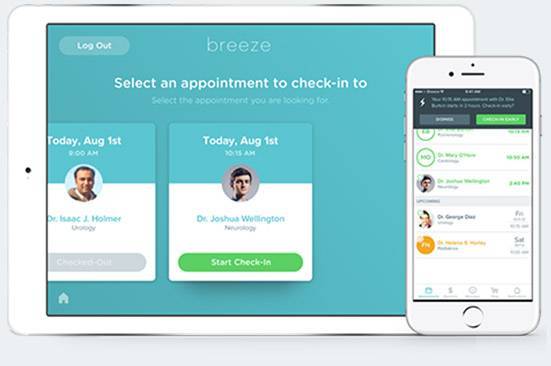Healthcare’s old guard is getting a wake-up call from some fresh-faced upstarts. The millennials have arrived, and they mean business. The healthcare workforce is transforming as millennials become its largest segment.
A report by AMN Healthcare states that by 2020, individuals born between 1982 and 2003, also known as the millennial generation, will make up 50% of the workforce. This number is expected to increase to 75% by the year 2030. As millennials become the largest segment of the healthcare workforce, a significant transformation occurs. Their expectations, beliefs, and culture will impact the workplace, including the healthcare industry.
In this blog post, we will explore how millennials are changing and improving healthcare workforce trends and what implications this has for healthcare organizations.
How Millennials Are Changing Healthcare Workforce Trends
Millennials are the largest generation in the workforce and the most diverse, educated, and tech-savvy individuals. They have grown up in a world of rapid change, social media, and global connectivity and bring a unique perspective and skill set to the healthcare sector. The impact of millennials and healthcare trends is significant, as this generation brings new values, perspectives, and expectations to the healthcare sector.
Some of the ways that millennials are changing healthcare workforce trends are as followed:
They value work-life balance and flexibility
Millennials are more likely to seek flexible work arrangements to balance their personal and professional lives. They also value autonomy, feedback, and recognition over financial rewards. According to a 2016 Deloitte Millennial Survey, millennials value work-life balance above all other job characteristics. Over 80% of individuals consider a job’s impact on their work-life balance.
They are driven by purpose and impact
Millennials want to work for organizations that share their values and positively impact society. They are more motivated by mission, vision, and culture than by salary or status. According to a study by the Lovell Corporation, millennials are driven more by purpose, passion, and impact than by growth, a balanced lifestyle, and security. They seek opportunities to learn, grow, and make a difference in their roles.
They are innovative and collaborative
Millennials are fearless in challenging the status quo and proposing new ideas and solutions. They also use technology to communicate, collaborate, and access information. A report by PwC states that individuals anticipate the technologies that enhance their personal lives to facilitate communication and innovation in their professional environment. They prefer working in teams rather than silos and value diversity and inclusion.
They are loyal to their careers, not their employers
Millennials are more likely to switch jobs frequently than previous generations, as they seek new challenges, opportunities, and experiences. They are also more willing to relocate or travel for work than older generations. According to a Gallup report, 21% of millennials say they’ve changed jobs within the past year, more than three times the number of non-millennials who report the same.
How Millennials Are Improving Healthcare Workforce Trends
Millennials are changing healthcare workforce trends and improving them in many ways. Some of the benefits that millennials bring to the healthcare sector are as follows:
They improve patient care and satisfaction
Millennials are more patient-centric and empathetic than previous generations, as they value human connection and personalization. They also have higher expectations for quality and convenience of care, as they are used to instant access and feedback from online platforms. They can improve patient care and satisfaction by applying these standards to their work.
They enhance innovation and efficiency
Millennials are more creative and adaptable than previous generations, as they can quickly learn new skills and technologies. They also have a problem-solving mindset and are willing to experiment and try new things. By applying these qualities to their work, they can enhance innovation and efficiency in the healthcare sector. One area where this is particularly evident is the adoption of digital health technologies, which can improve patient outcomes and streamline healthcare delivery.
They foster diversity and inclusion
Millennials are more diverse and inclusive than previous generations, as they have been exposed to different cultures, perspectives, and experiences. They also value diversity and inclusion in their workplaces, believing it leads to better outcomes and performance. By fostering a culture of diversity and inclusion in the healthcare sector, they can improve the representation and engagement of various groups and communities.
How Healthcare Organizations Can Attract and Retain Millennials
As millennials become the dominant force in the healthcare workforce, healthcare organizations must adapt their strategies and practices to attract and retain them. Some of the ways that healthcare organizations can do this are as follows:
Offer work-life balance and flexibility
Healthcare organizations should provide flexible work options such as remote work, telecommuting, flexible hours, compressed schedules, or job sharing. They should also respect millennials’ time and boundaries and avoid overloading them with work or expecting them to be available 24/7.
Additionally, they should offer benefits such as paid time off, wellness programs, childcare support, or tuition reimbursement. One way to offer flexibility is through the adoption of telehealth solutions, which can enable remote patient care and improve work-life balance for healthcare providers.
Align with their values and purpose
Healthcare organizations should communicate their mission, vision, and values clearly and consistently and show how they align with millennials’ values and purpose. They should also demonstrate their social responsibility and impact and involve millennials in decision-making and planning. Furthermore, they should provide opportunities for millennials to contribute to causes or projects that matter to them, either within or outside the organization.
Provide learning and development opportunities
Healthcare organizations should invest in millennials’ learning and their development by providing them with ongoing feedback and recognition. They should also offer mentoring, coaching, or sponsorship programs to help millennials grow their skills and careers. Moreover, they should encourage millennials to pursue their interests and passions and support them in acquiring new certifications or credentials.
Create a culture of innovation and collaboration
Healthcare organizations should foster a culture of innovation and collaboration where millennials can share their ideas and opinions freely and openly. They should also leverage technology to facilitate communication and information sharing among millennials and other generations. Additionally, they should promote diversity and inclusion in their teams and leadership to celebrate the differences and strengths of each generation.
Conclusion
Millennials are changing and improving healthcare workforce trends in various ways. They bring unique values, expectations, preferences, skills, and perspectives to the healthcare sector that can enhance patient care, innovation, efficiency, diversity, and inclusion.
Healthcare organizations must adapt their strategies and practices to attract and retain millennials and leverage their potential and contributions. By doing so, they can benefit from the millennial workforce and prepare for the future of healthcare.




